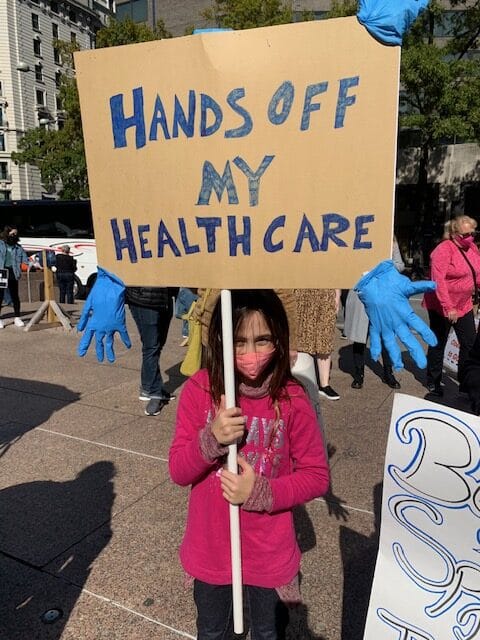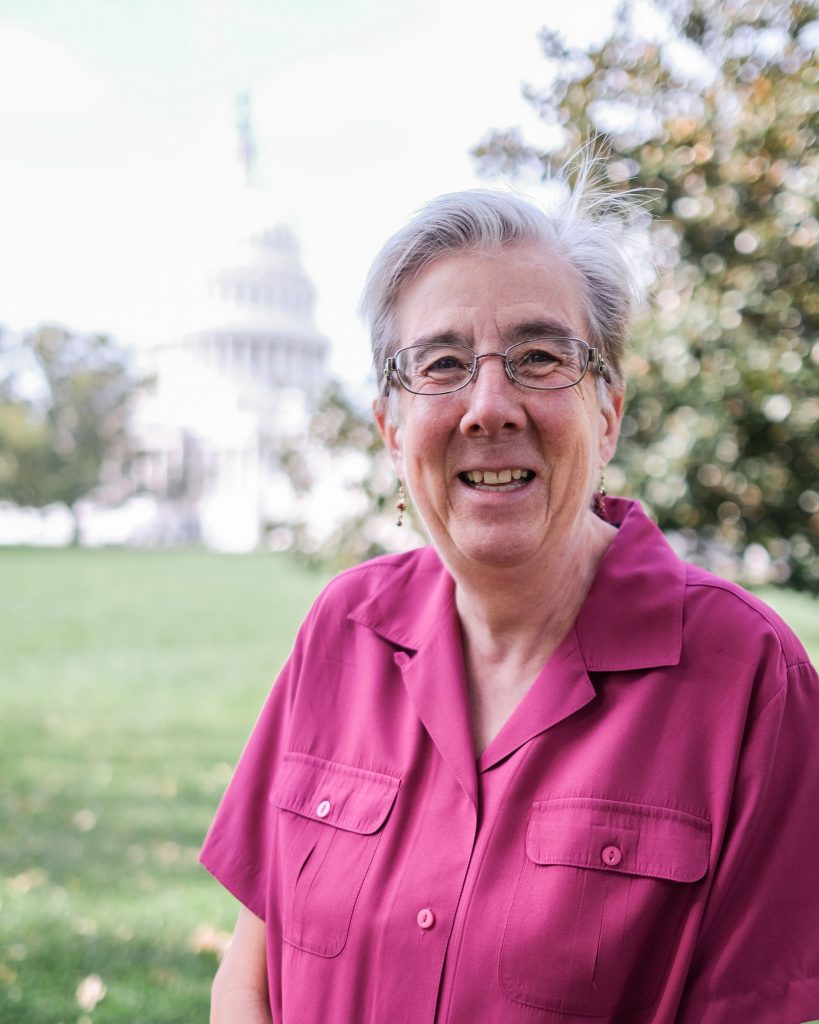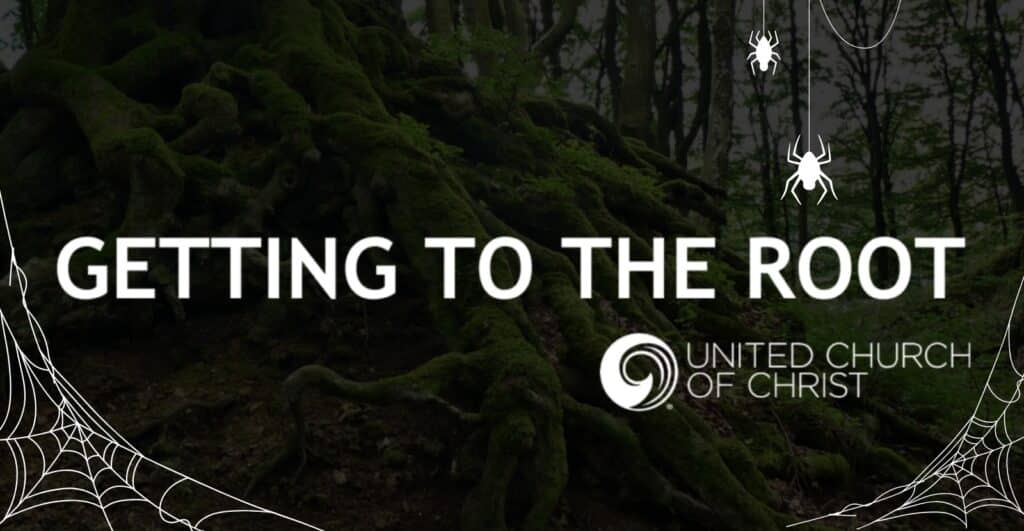Women’s Bodies Are Not Battlefields
In my second year of seminary, I chose to do a community-based field placement at a comprehensive women’s health clinic in New Haven, CT. It was not lost on me that in order to enter the clinic – providing the full range of health and health care for women in widely diverse circumstances – I had to be buzzed in past a series of locked, reinforced doors. One of the first things covered in my orientation was what to do in the event of a bomb threat. And just be prepared, I was told, on Saturdays I might need to walk through a line of protesters and New Haven police on horseback.

Many of you will recognize the popular UCC justice button, “Women’s bodies are not battlefields.” It addresses the horrific reality of rape being used as a tool of war in conflict zones, but its power extends far beyond that specific context. It speaks to the reality that from the early ages, from Mary’s Magnificat to the current conversation about sexual harassment and domestic violence, women’s bodies have always been political. And women’s moral agency has always been viewed as dangerous.
This tension permeates the debate around reproductive health justice. The terrain has shifted in 2021, with a new Administration, a new Congress and changes in the Supreme Court. The Biden Administration acted swiftly to overturn the Mexico City policy, also known as the global gag rule, which blocks U.S. federal funding for non-governmental organizations that offer abortion services or referrals.
On the state level, however, threats to the full range of reproductive health care are on the rise, including Ohio, Montana, South Carolina, Arkansas, Arizona, Tennessee and many others. These laws range from instituting waiting periods, bans on abortion as early as six weeks, “fetal heartbeat laws” that would make abortion illegal as soon as an embryonic or fetal heartbeat can be detected, laws requiring fetal tissue to be buried or cremated, and “bubble zones” for anti-abortion demonstrators at health clinics. Elizabeth Nash, acting associate director for state policy at the Guttmacher Institute observes, “they’re [states] either prepping for the time when Roe is undermined or overturned, or they want to be the state that undermines or overturns Roe.”
It is also important to note that these attacks are happening in the context of the COVID-19 health pandemic and the impact it has had on women’s lives. Over the last year, the majority of job loss has impacted women, and rates of domestic violence are on the rise.
We know from lived experience that when women and girls have access to education and the full range of reproductive health care, when they are empowered with agency over their own bodies, when they are not under constant threat of violence and sexual assault, they, their families, and their communities thrive. This is evident in the U.S. and around the world. The health of individual women, and their access to the full range of health services, impacts everyone. We must work to change the false narrative that women’s autonomy is antithetical to the well-being of families and communities.

For over 40 years, the United Church of Christ General Synod has affirmed and supported women’s access to the full range of reproductive health care, including abortion. Through membership in the Religious Coalition for Reproductive Choice, the UCC has joined with many other faith groups across traditions to affirm women’s access to reproductive health care. The UCC Our Whole Lives comprehensive human sexuality curriculum provides vital education and empowerment for a range of age groups, so that sexuality can be grounded in a healthy, respectful, faith-based context.
Faith voices are critical to this effort. You can make a difference by exploring these faith-based resources and helping to change the narrative about abortion and reproductive health care. Our stories are a critical tool in public policy advocacy and media advocacy to support women’s health autonomy. Let’s change the narrative!
Sandy Sorensen is the Director of the UCC Washington D.C. Public Policy and Advocacy Office
Related News
Holding Space for Grief and Hope After the 2024 Election
Beloveds, for many the results of the US election are a devastating departure from the just...
Read MoreDon’t be Scared, be Prepared: What to Expect in the 2024 November Election
With November 5th approaching fast, it can be difficult keeping the election anxiety at bay....
Read MoreCountering Project 2025 With Love: A UCC Response
Project 2025 is a compilation of policy proposals and presidential transition project launched...
Read More
